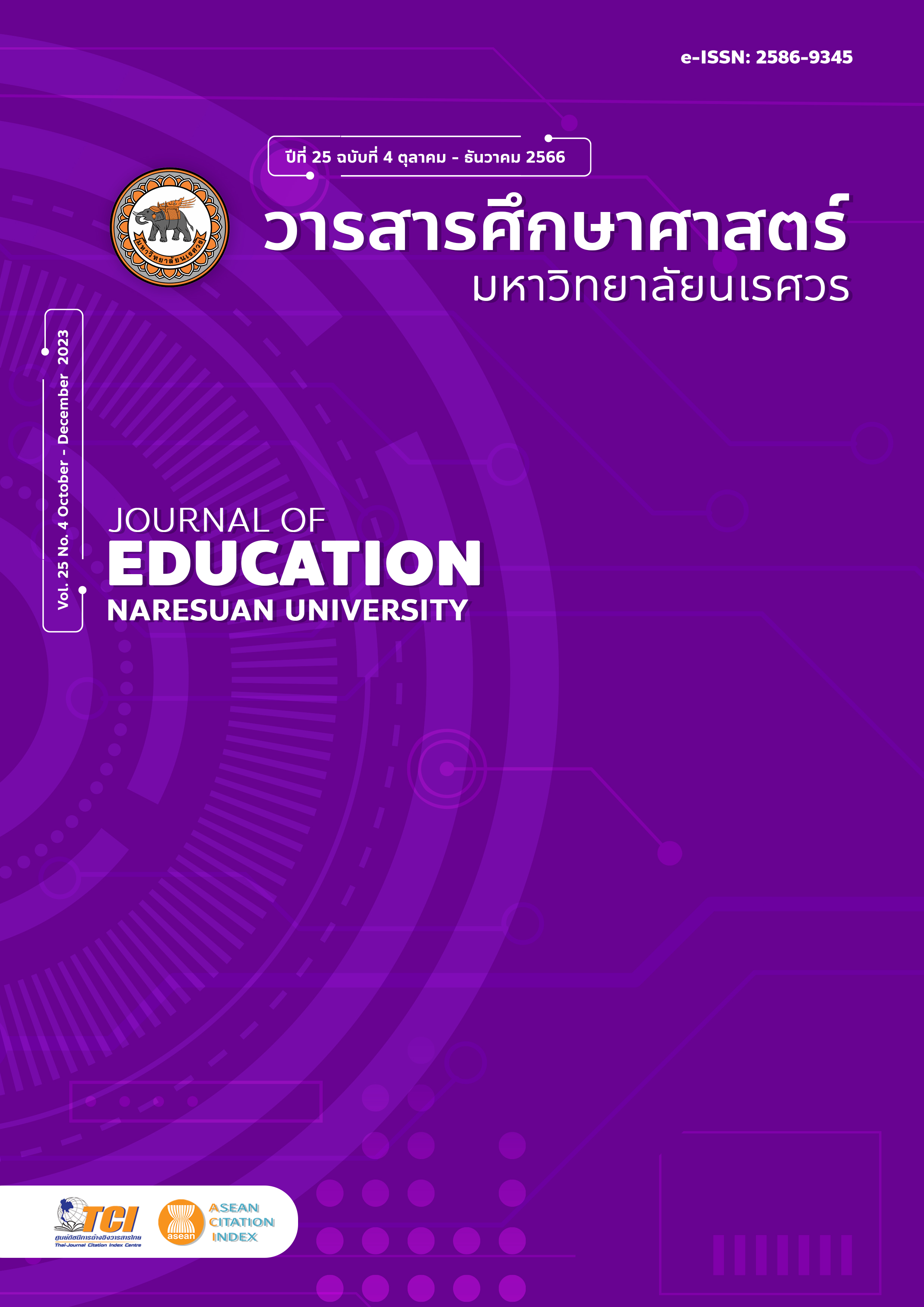A CONFIRMATORY FACTOR ANALYSIS OF DIGITAL LEADERSHIP FOR SCHOOL ADMINISTRATORS OF LOWER NORTHERN PRIMARY EDUCATIONAL SERVICE AREA OFFICE
Main Article Content
Abstract
This descriptive research aimed to study and examine the consistency of a component model of digital leadership for school administrators of lower northern primary educational service area office. The samples consisted of 445 administrators of lower northern primary educational service area office. Define the sample size according to Hair’s parameters, acquired by random stratified sampling. The data were collected by a 5-rating scale questionnaire. The index of consistency was between 0.80-1.00, and the reliability of the questionnaire was between 0.96-0.97. The data were analyzed by programmatic confirmatory component analysis by using the Mplus Program. The results were as follows: 1) The digital leadership for school administrators of lower northern primary educational service area office consisted of 4 components including digital communication, digital vision, digital citizenship, and professionalism. Each component has 3 indicators. 2) The model of digital leadership was consistent with the empirical data with values (2 (43, N=445) = 56.451, p=0.082, CFI=0.998, TLI=0.996, RMSEA=0.027, SRMR=0.009). Each component has a standard component weight in the range of 0.924-0.998, and each indicator of the main component has a standard weight in the range of 0.821-0.911.
Article Details

This work is licensed under a Creative Commons Attribution-NonCommercial-NoDerivatives 4.0 International License.
The owner of the article does not copy or violate any of its copyright. If any copyright infringement occurs or prosecution, in any case, the Editorial Board is not involved in all the rights to the owner of the article to be performed.
References
Anannawee, P. (2022). School administrators: Digital leadership. Academic Journal of North Bangkok University, 11(2), 1-12. [in Thai]
Buachoo, T., & Buachoo, T. (2020). Leadership of educational institution administrators. Journal of Educational Studies, 13(2), 285-294. [in Thai]
Chaowachai, S. (2021). A study of strategic leadership and guidelines to strategic leadership development of secondary school administrators under the Secondary Educational Service Area Office 39. Humanities and Social Sciences Journal of Pibulsongkram Rajabhat University, 15(2), 374–384. [in Thai]
Damrongpanit, S. (2020). Mplus program with analysis of research data in behavioral science and social science (2nd ed.). Bangkok: Chulalongkorn University Press. [in Thai]
Jitvirat, S. (2019). The indicators of the digital transformation trends to digital Thailand 4.0. Veridian E-Journal, Silpakorn University (Humanities, Social Sciences, and Arts), 12(4), 119-138. [in Thai]
Hair, J. F., Black, W. C., Babin, B. J., & Anderson, R. E. (2010). Multivariate data analysis (7th ed.). Pearson: New York.
Kanchanathanachai, C. (2019). Digital leadership indicators for administrators in schools under the Office of The Basic Education Commission (Doctoral Dissertation). Ayuthaya: Mahamakut Buddhist University. [in Thai]
Khaosakun, S., Boonruangrutana, S., & Chitchirachan, C. (2021). The development of the digital leadership indicators of the school directors under the Office of Primary Educational Service Areas. Sikkha Journal of Education, 8(1), 45-56. [in Thai]
Komolwanich, S., Sonsupee, S., Petwisit, B., & Chimtim, K. (2020). Digital leadership of school administrator under the Secondary Educational Service Area Office 23. In The 21st NGRC (p. 700-708). Khon Kean: Khon Kaen University. [in Thai]
Pakorn, J., Koolnaphadol, T., & Burasirirak, S. (2022). Model of digital leadership for administrators in schools under the authority of the Office of the Basic Education Commission. Rajapark Journal, 16(48), 396-410. [in Thai]
Pakotung, J. (2018). Leadership in digital era for professional school administrators. Ubon Ratchathani: Siritham Offset. [in Thai]
Sheninger, E.C. (2014). Digital leadership: Changing paradigms for changing times. United States of America: Corwin.
Suksai, T., Suanpang, P., & Thangchitcharoenkhul, R. (2021). A digital leadership development model for school administrators in basic education to fulfill the Thailand 4.0 Policy. PSAKU International Journal of Interdisciplinary Research, 10(2), 11-20.
Suttagarn, A., & Chaowachai, S. (2022). Proposed guidelines development of digital literacy for school administrator under The Secondary Educational Service Area Office Nan. Educational Management and Innovation Journal, 5(3), 70-86. [in Thai]
Thawinkarn, D. (2021). Digital leadership. Khon Kaen: Khon Kaen University. [in Thai].
Vanichbuncha, K. (2007). Statistical for research (3rd ed.). Bangkok: Chulalongkorn University Book Center. [in Thai]
Wannasri, J. (2021). Educational management in digital era. Phitsanulok: Rattanasuwan Printing. [in Thai]
Zhu, M. Y. (2016). Smart education: A research framework of smart education. International Society for Technology in Education, 12(1), 2-17.


